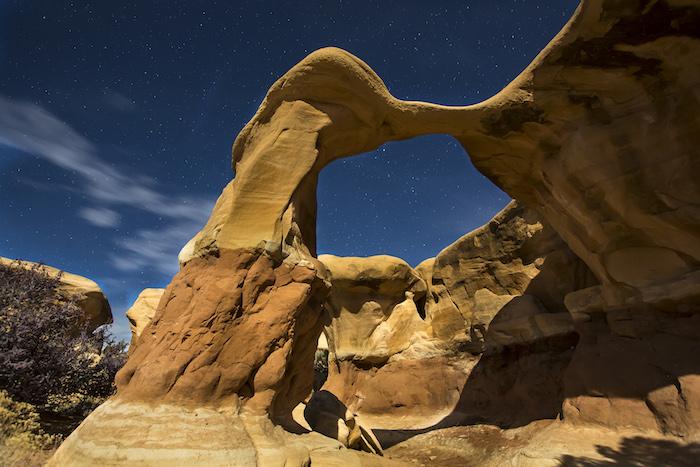
Six groups are suing the Interior Department over its failure to respond to Freedom of Information Act requests seeking details into Interior Secretary Ryan Zinke's deliberations over the fate of 27 national monuments/BLM
Leaked memos and a senator's comments regarding Interior Secretary Ryan Zinke's review of 27 national monuments lack the requisite transparency over the Trump administration's efforts to shrink some monuments, according to a legal organization that has filed a lawsuit seeking more details on the secretary's review process.
Earthjustice, a nonprofit law firm that often represents environmental and conservation groups, maintains that the Interior Department, Bureau of Land Management, and the White House Council on Environmental Quality "have repeatedly failed to answer the public’s Freedom of Information Act requests" seeking details about the administration's review of national monuments designated by Presidents Bill Clinton, George W. Bush, and Barack Obama.
Among the questions the law firm, which brought the lawsuit on behalf of six organizations, wants answered is how Secretary Zinke incorporated input from Native American tribes and the 2.8 million Americans who urged protections for national monuments in the public comment period.
“The Trump administration continues its onslaught against America’s national monuments, hoping to cover up its misdeeds by blocking public access to information crucial to the protection of these iconic places,” said Yvonne Yuting Chi, an attorney in Earthjustice’s Rocky Mountains office. “National monuments preserve America’s historical heritage, stunning wilderness, geologic wonders, and priceless cultural sites — and they’re meant to be protected for future generations under the Antiquities Act. But the Trump administration wants to pretend that the laws of the land have changed. The American people have the right to know the fate of these magnificent places that belong to all of us, and we are taking these agencies to court to get answers.”
One of the group's in the lawsuit, Utah-based Southern Utah Wilderness Alliance, believes the public deserves to know "who had the White House and Interior Department’s ear to push the President to dismantle Bears Ears and Grand Staircase-Escalante National Monuments.”
U.S. Sen. Orrin Hatch, Utah's senior senator who has held his seat for more than 40 years, last week said President Trump informed him he planned to reduce in size both Bears Ears and Grand Staircase-Escalante national monuments. Grand Staircase holds rich coal deposits, and most Utah politicians want to see them mined.
“We also expect this lawsuit will shed light on the information and factors the White House Council on Environmental Quality and Interior Department considered as part of Secretary Zinke’s ‘monuments review’ and that led him to recommend eviscerating Bears Ears and Grand Staircase-Escalante National Monuments, a decision that would place irreplaceable cultural and public natural resources at risk of damage and destruction," said Stephen Bloch, SUWA's legal director.
Others in the lawsuit include the Natural Resources Defense Council, The Wilderness Society, Grand Canyon Trust, Sierra Club, and Great Old Broads for Wilderness. The lawsuit seeks to compel the agencies to respond to seven Freedom of Information Act requests, most of which have been overdue for months. The complaint alleges that the agencies have failed to meet their response deadlines under the act and have repeatedly rejected or ignored these organizations’ inquiries on their requests’ status.
“If Interior Secretary Zinke’s ‘first step’ before telling the president to ravage the Bears Ears National Monument was, as he claims, to ‘gather the facts,’” said Aaron Paul, a staff attorney with the Grand Canyon Trust, “why are our months-old requests for those already-gathered facts still unanswered when federal law gives the Secretary 20 days to respond? It’s a shame that we have to turn to the courts to force the Secretary to deliver the transparency that the Freedom of Information Act secures for the American public.”
Since 1967, the Freedom of Information Act has provided the public the right to request access to records from any federal agency. When a member of the public lodges a request with a federal agency under this act, the agency must promptly disclose any information requested unless the information falls under one of the nine exemptions protecting interests such as personal privacy, national security, and law enforcement.





